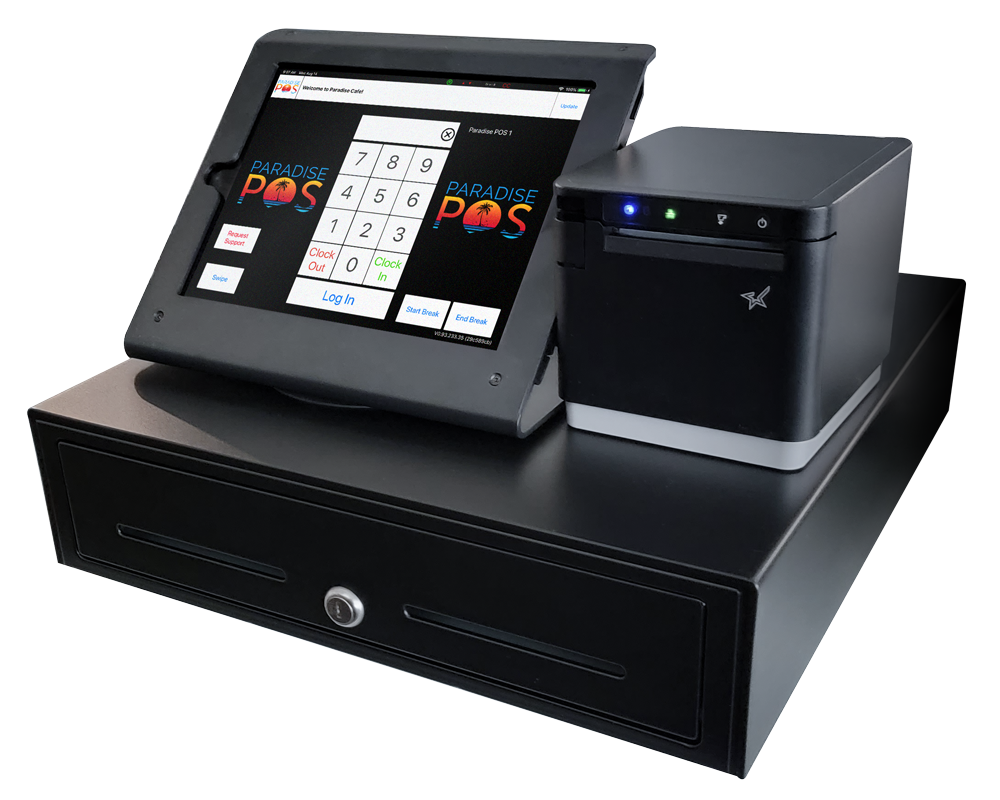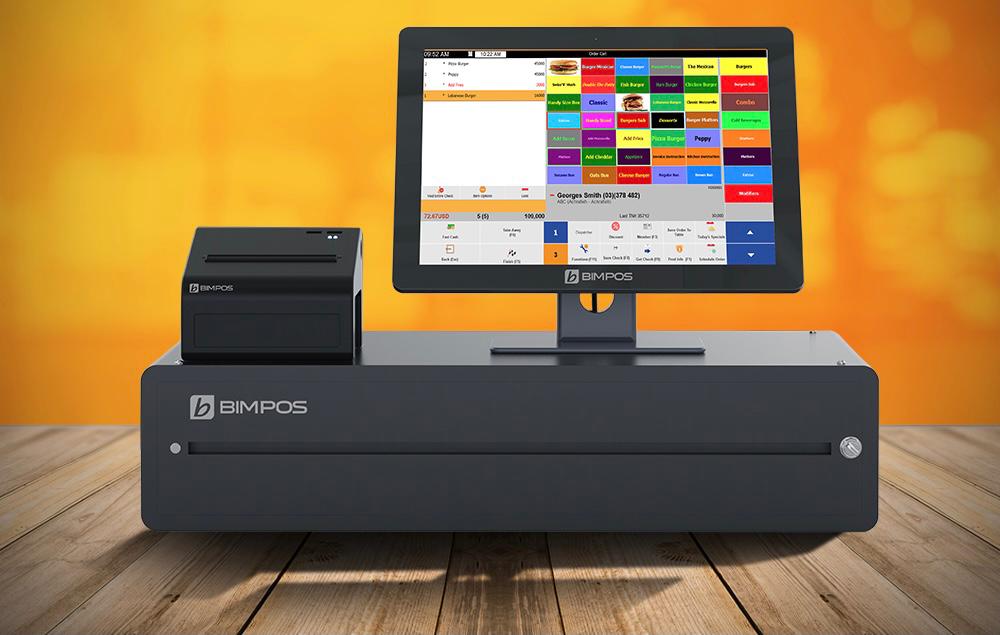Pos Software Fundamentals Explained
Pos Software Fundamentals Explained
Blog Article
Pos Systems for Beginners

POS Systems: Retail Point-Of-Sale Solutions Streamline Deals
The Best Guide To Pos Systems

Hardware Parts of a Point of Sale System What makes a POS system tick? It's not just software; the hardware plays a starring function. Think about it as the body to the software's brain. Without the ideal hardware, even the most advanced POS software is just a quite face. Essential POS Hardware So, what are the must-haves? Let's simplify. The main processing unit, frequently a computer or tablet, is the heart of the operation. The screen or touchscreen display permits personnel to communicate with the system. A barcode scanner speeds up the checkout procedure. Keep in mind the days of manually going into each code? The reliable invoice printer offers clients with a record of their purchase. A money drawer keeps your money safe and organized. A card reader allows consumers to pay with credit or debit cards. Diving Deeper: Beyond the Basics But wait, there's more! Depending on your business, you might need specific hardware. For instance, a dining establishment may incorporate kitchen printers to relay orders, while a retailer may utilize label printers for product tagging. Ever wonder how your regional pastry shop immediately prints those delicious-looking labels? Picking the Right Hardware: A Balancing Act Choosing the best hardware isn't just about purchasing the most expensive equipment. It has to do with finding the sweet spot between functionality, resilience, and spending plan. A small company simply starting may choose a more standard setup, while a high-volume seller will need robust, high-performance machines. Is it better check here to buy new or used? Consider your alternatives carefully. A brand-new system offers the most recent innovation and service warranty defense, however a reconditioned system can save you money. The Future of POS Hardware What does the future hold? Anticipate to see a lot more integration with mobile devices, biometric scanners for employee authentication, and advanced analytics dashboards showed on larger, clearer screens. Think of a world where stock is instantly upgraded in real-time as items are scanned-- a world where you can track your best-selling item from anywhere in the world. The possibilities are limitless, and the hardware is continually evolving to satisfy the needs these days's services. Are you ready to update your point of sale system?
Software Application Features and Capabilities: The Heart of Your POS System
Ever enjoy a seasoned barista move through a hectic early morning rush? Their trick isn't just caffeine; it's a seamless dance with their POS system. The software is the conductor of your service symphony, managing everything from sales to inventory. However what notes should you be listening for? What capabilities really matter in today's market?
Stock Management: Beyond Counting Beans
Forget spreadsheets that haunt your dreams. Modern POS systems provide real-time stock tracking, notifying you when your stock of artisanal coffee beans dips precariously low. Consider it as a digital guardian angel, avoiding those uncomfortable "Sorry, we're out!" minutes to clients. What if you could likewise forecast need based upon historic data? Lots of systems now use forecasting tools, a powerful weapon versus overstocking and lost sales. This assists avoid the circumstance of running out of popular products or building up excess stock of slow-moving products, both of which can constrain cash flow and area.
Sales Reporting and Analytics: Decoding the Data
Sales information is the brand-new gold, and your POS system is the miner. Forget feeling in one's bones just how much you offered today. Dive deep into the data to reveal patterns, recognize your best-selling items, and comprehend client behavior. Which menu item pairs completely with the daily special? Which promo resonated most with your clientele? These insights are not simply intriguing; they're actionable intelligence. Without reputable sales reporting, navigating the complexities of organization decision-making becomes like cruising without a compass, increasing the possibility of bad moves and missed out on chances.
Client Relationship Management (CRM): Building Bridges, Not Walls
Keeping in mind a routine consumer's name and preferred order is captivating, but scaling that personal touch is challenging. POS systems with CRM abilities enable you to track client purchase history, choices, and even birthdays. Think of automatically providing a discount rate on their birthday-- a small gesture that fosters loyalty and encourages repeat organization. There is the potential snag of bad information quality, which can lead to inaccurate client profiles and inefficient marketing efforts.
Payment Processing: Streamlining the Transaction
The checkout experience can make or break a sale. Seamless combination with various payment methods-- charge card, mobile wallets, even copyright-- is non-negotiable. Can your system handle split payments? Does it provide secure tokenization to secure customer information? A cumbersome payment procedure resembles striking a sour note in your business symphony, possibly disrupting the whole efficiency. Making sure compatibility with progressing payment innovations and adherence to security requirements are critical for keeping consumer trust and functional performance.
Worker Management: Keeping the Group in Sync
From clocking in and out to handling consents and tracking efficiency, employee management features enhance operations and enhance responsibility. Is scheduling a headache? Lots of POS systems provide incorporated scheduling tools, optimizing staffing levels based upon anticipated demand. A typical obstacle that is typically neglected is the obstacle of integrating staff member management performances with payroll systems, which can result in mistakes and inadequacies in wage calculations.
Advanced Features: Leveling Up Your Operations
- Table Management: Perfect for restaurants, this feature permits you to imagine your dining-room, track table status, and handle reservations.
- Loyalty Programs: Reward your finest consumers and motivate repeat organization with integrated loyalty programs.
- Online Buying Integration: Perfectly integrate your POS system with online ordering platforms to expand your reach.
Selecting the best POS system is about more than simply functionality; it has to do with discovering a partner that can grow with your company. Consider your current requirements, expect future development, and don't be scared to ask the difficult concerns. The best software application can change your service from a chaotic cacophony into a harmonious masterpiece.
Industry-Specific POS System Applications
Think of the regional bakery, busy with early morning customers craving fresh croissants. A generic POS system might handle transactions, however can it handle complex dishes, track component inventory, or immediately change production schedules based on sales information? Probably not. That is where the charm of industry-specific POS systems shines.
Dining establishments and Hospitality
For dynamic dining establishments, speed and accuracy are critical. The number of times have you seen servers handling orders, adjustments, and splitting expenses, all while trying to provide excellent service? A restaurant POS system improves these processes, enabling table management, kitchen area order tickets, and even online ordering integration. These systems often include functions like ingredient-level stock tracking, essential for handling food costs and decreasing waste. Ever wonder why your favorite dish is in some cases unavailable? It may originate from an absence of proper stock management.
- Table Management
- Cooking Area Order Tickets
- Online Purchasing Combination
- Ingredient-Level Inventory Tracking
Retail Solutions
Retail, with its diverse inventory and consumer interactions, demands a different set of tools. Imagine a store clothes shop struggling to keep an eye on sizes, colors, and seasonal collections using a basic checkout system. An industry-specific retail POS system uses features like barcode scanning, consumer commitment programs, and detailed sales reporting. These systems can even incorporate with e-commerce platforms, offering a seamless omnichannel experience for customers. Did you understand some retail POS systems can forecast future sales trends based on historic information? Now that is powerful!
The Dangers of a Mismatch
Choosing the incorrect POS system can develop considerable operational obstacles. A clothes shop using a dining establishment POS, for instance, would discover it unsuitable for managing stock with sizes and colors. The lack of appropriate reporting and analytics could cause mistaken acquiring decisions and lost income. The result could be similar to trying to fit a square peg in a round hole.
Secret Factors to consider
Selecting an industry-specific POS system needs mindful examination. Think of your company's distinct needs and operational workflows. Does the system incorporate with existing software? Does it use the needed reporting capabilities? Is it scalable to accommodate future development? A well-chosen POS system is not just a transaction tool; it's a tactical property that can drive effectiveness, improve consumer satisfaction, and ultimately, boost your bottom line. Keep in mind, it is a financial investment in your service's future, not just an expense.
Security Factors To Consider for Point of Sale Systems
Ever heard the tale of the mom-and-pop store that lost everything since of a single, overlooked security defect in their POS system!.?. !? It's a cautionary tale, and it highlights a vital aspect frequently eclipsed by the appeal of elegant features and streamlined operations. The truth is, a POS system is just as good as its security. What excellent is a system that crunches numbers in a flash if it allows wrongdoers to swipe consumer's data just as rapidly?
The Vulnerability Minefield
The digital landscape is a battlefield. Every POS system, no matter size or sophistication, is a possible target. Are you genuinely prepared for the risks hiding around the corner? The real pinch comes when you discover that your outdated software has an open hole that hackers can make use of, turning your organization into an unwitting accomplice in identity theft. The trouble is that hackers are crafty and are always altering their strategies.
Typical Security Spaces and Specialist Tips
- Weak Passwords: "Password123" isn't cutting it. Usage strong, distinct passwords for all POS system accounts and alter them frequently. Two-factor authentication is a must.
- Unsecured Networks: Your Wi-Fi resembles leaving the front door open. Protect your network with strong file encryption (WPA3 if possible) and consider a different network for your POS system.
- Out-of-date Software: Software suppliers spot security holes all the time. Failing to upgrade resembles welcoming trouble. Set up automatic updates or schedule regular maintenance.
- Employee Training: Your staff is your first line of defense. Train them to recognize phishing efforts, secure passwords, and report suspicious activity.
Information File Encryption: Your Guard Against the Dark Arts
Consider information encryption as a secret code. It scrambles sensitive information, like credit card numbers, making it unreadable to unapproved users. Without encryption, your consumers' monetary details resemble sitting ducks, ripe for the selecting by cybercriminals. It's not practically safeguarding your consumers; it has to do with protecting your track record and preventing hefty fines.
PCI Compliance: The Rulebook You Can't Ignore
If you accept credit cards, you're bound by the Payment Card Market Data Security Requirement (PCI DSS) It's a set of security standards developed to protect cardholder data. Stopping working to comply can lead to fines, charges, and even the loss of your ability to process charge card payments. It's a headache, yes, but it's a necessary one. Think about PCI compliance as the expense of doing service in the digital age.
Consider this: every deal processed through your point of sale is a potential entry point for destructive stars. By executing robust security procedures, you're not just safeguarding your company; you're securing your customers' trust and making sure the long-lasting viability of your operations. The security of your POS system isn't simply a technical problem; it's a company crucial. It requires consistent watchfulness, proactive steps, and a commitment to remaining ahead of the curve.